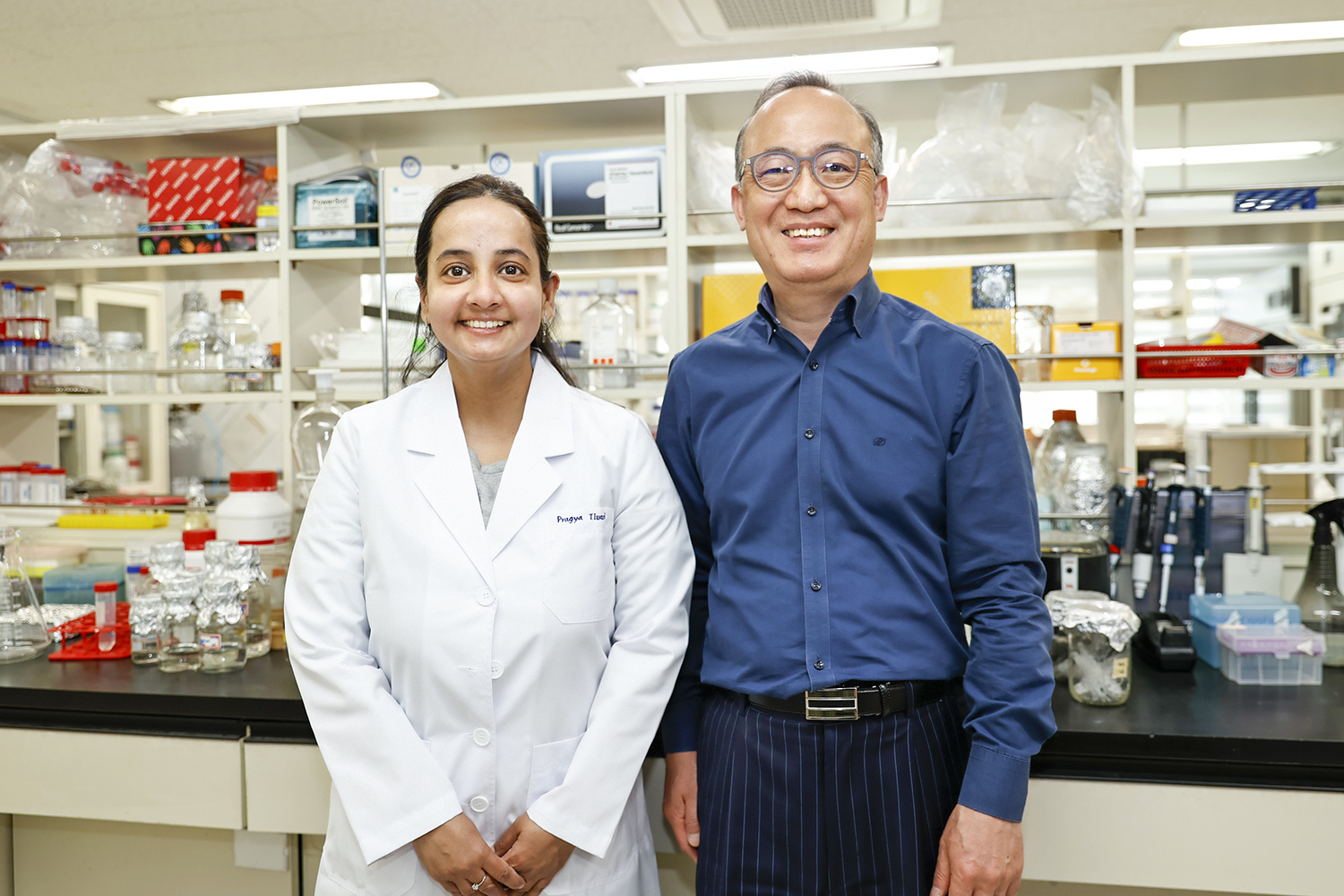Department of Biotechnology Professor Bae Han-hong Draws Domestic and International Attention for Paper on ‘Plant-derived Antibiotics’ N
No.89339- Writer pr
- Date : 2021.05.07 17:02
- Views : 8854
Suggested alternative for overcoming antibody tolerance... Comparative analysis on pros and cons of plant-based antibody material production techniques
Listed in internationally prominent journals, selected as ‘People Who Made Korea Shine’ of the BRIC (Biological Research Information Center)
“Can be used for development of antibodies by biotechnology companies”

This paper is titled ‘Plant synthetic biology for producing potent phyto-antimicrobials to combat antimicrobial resistance’ and it was carried out by the internationally acclaimed journal in biotechnology <Biotechnology Advances> (Impact factor (IF) 10.744) in March of this year. YU Department of Biotechnology Professor Pragya Tiwari (38) participated as the lead author and Professor Bae participated as a corresponding author.
This study was a review that briefly explained about antibody tolerance mechanisms and about how to use plant-based metabolites as an alternative for overcoming this. Comparative analyses were made on descriptions and the pros and cons of synthetic biology needed for efficiently producing antibodies based on plants and using metabolic engineering.
Professor Bae said, “The advent of bacteria resistant against antibodies due to the abuse and the natural evolution of antibodies has become a huge issue worldwide,” and added, “The basic directions and methods of producing plant-based antibodies including medicinal plants were presented. It will be available to plant biotechnology companies to develop antibodies.”
Recently, Professor Bae was selected as ‘People Who Made Korea Shine’ introduced by the BRIC (Biological Research Information Center). BRIC is Korea’s top institute for providing bio research information and was established in 1996. It carries papers in academic journals with impact factor (IF) of 10 or higher in scientific citation index (SCI) in the biotechnology sector, and introduces Koreans who achieved outstanding research accomplishments.